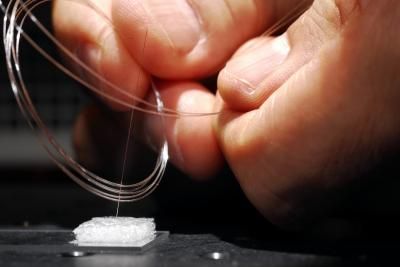New technique extends next-generation lithium metal batteries
Discovery could optimize electrolyte design for stable lithium metal batteries, enabling lightweight, low-cost, long-lasting energy storage
Electric vehicles (EVs) hold great promise for our energy-efficient, sustainable future but among their limitations is the lack of a long-lasting, high energy density battery that reduces the need to fuel up on long-haul trips. The same is true for houses during blackouts and power grid failures--small, efficient batteries able to power a home for more than one night without electricity don't yet exist. Next-generation lithium batteries that offer lightweight, long-lasting, and low-cost energy storage could revolutionize the industry but there have been a host of challenges that have prevented successful commercialization.
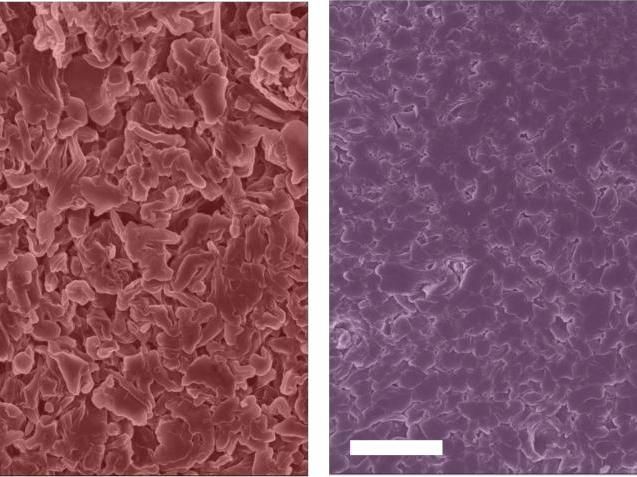
Lithium metal batteries exhibit microstructural growth when cycled in conventional lithium battery electrolyte (left). Addition of potassium ions to the electrolyte modulates degradation during battery operation, preventing the growth of microstructures and leading to safer, longer lasting batteries (right).
Lauren Marbella/Columbia Engineering
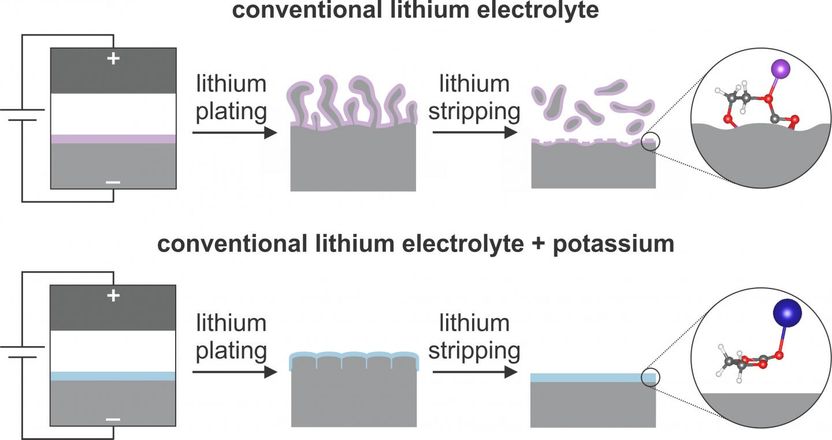
The team used nuclear magnetic resonance imaging and computer simulations to better understand the reactivity and structure of molecules on the surface of lithium metal anodes that could lead to improved performance.
Lauren Marbella/Columbia Engineering
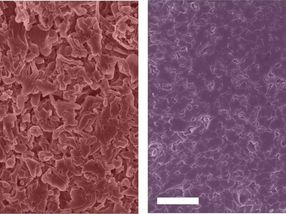
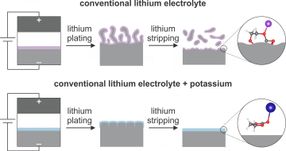
A major issue is that while rechargeable lithium metal anodes play a key role in how well this new wave of lithium batteries function, during battery operation they are highly susceptible to the growth of dendrites, microstructures that can lead to dangerous short-circuiting, catching on fire, and even exploding.
Researchers at Columbia Engineering report that they have found that alkali metal additives, such as potassium ions, can prevent lithium microstructure proliferation during battery use. They used a combination of microscopy, nuclear magnetic resonance (similar to an MRI), and computational modeling to discover that adding small amounts of potassium salt to a conventional lithium battery electrolyte produces unique chemistry at the lithium/electrolyte interface.
"Specifically, we found that potassium ions mitigate the formation of undesirable chemical compounds that deposit on the surface of lithium metal and prevent lithium ion transport during battery charging and discharging, ultimately limiting microstructural growth," says the team's PI Lauren Marbella, assistant professor of chemical engineering.
Her team's discovery that alkali metal additives suppress the growth of non-conductive compounds on the surface of lithium metal differs from traditional electrolyte manipulation approaches, which have focused on depositing conductive polymers on the metal's surface. The work is one of the first in-depth characterizations of the surface chemistry of lithium metal using NMR, and demonstrates the power of this technique to design new electrolytes for lithium metal. Marbella's results were complemented with density functional theory (DFT) calculations performed by collaborators in the Viswanathan group in mechanical engineering at Carnegie Mellon University.
"Commercial electrolytes are a cocktail of carefully selected molecules," Marbella notes. "Using NMR and computer simulations, we can finally understand how these unique electrolyte formulations improve lithium metal battery performance at the molecular level. This insight ultimately gives researchers the tools they need to optimize electrolyte design and enable stable lithium metal batteries."
The team is now testing alkali metal additives that stop the formation of deleterious surface layers in combination with more traditional additives that encourage the growth of conductive layers on lithium metal. They are also actively using NMR to directly measure the rate of lithium transport through this layer.
Original publication
Other news from the department science
Most read news
More news from our other portals
See the theme worlds for related content
Topic World Battery Technology
The topic world Battery Technology combines relevant knowledge in a unique way. Here you will find everything about suppliers and their products, webinars, white papers, catalogs and brochures.

Topic World Battery Technology
The topic world Battery Technology combines relevant knowledge in a unique way. Here you will find everything about suppliers and their products, webinars, white papers, catalogs and brochures.



























































